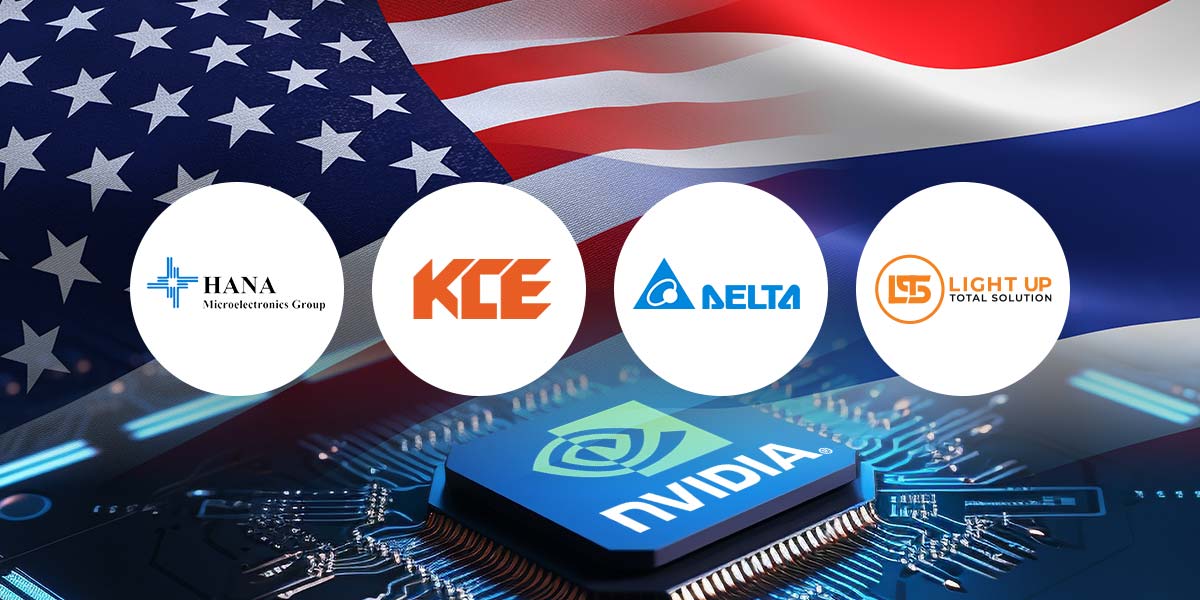Industry experts anticipate that the recently announced U.S. proposals to restrict exports of advanced AI chips to Thailand will primarily impact the local electronics sector, both directly and in terms of market sentiment.
According to market experts, Hana Microelectronics (SET: HANA) is expected to bear the most significant consequences should the proposed controls move forward. This is due to the company’s key role in quality control and chip packaging operations, primarily handling downstream processes. HANA frequently acts as a conduit, receiving chips from major suppliers such as Texas Instruments—a principal revenue source for the company—before further distribution for use in electronic devices.
By contrast, KCE Electronics (SET: KCE) is likely to experience only minimal direct repercussions. The company’s revenue stream is largely focused on the automotive sector, with only a negligible proportion derived from semiconductor chips impacted by the current US export proposals.
Delta Electronics (Thailand) (SET: DELTA) does not seem to face immediate direct exposure to the restrictions. However, there is potential for indirect effects, particularly in business segments related to data centers and cloud infrastructure—areas that may become more reliant on access to advanced AI chipsets.
Meanwhile, Light Up Total Solution (mai: LTS), a supplier of NVIDIA products in Thailand, could also be affected, although the overall extent will hinge on the fine print of these regulatory measures.
Crucially, experts emphasize that the restriction under discussion pertains to a quantitative limit on AI chip exports to Thailand, rather than an outright ban. As the regulations have not yet been finalized, experts recommend closely monitoring further policy details to assess precise implications.
Apart from HANA, DELTA, KCE, LTS, and to a lesser extent Star Microelectronics (Thailand) (SET: SMT), are among the publicly listed companies likely to experience some impact—whether directly or indirectly—from the new controls.
Additionally, there may be more distant, indirect effects on user segments that are heavy AI chip consumers, or on firms planning significant data center investments. Nevertheless, it is currently expected that these downstream impacts will be limited, barring substantial tightening of the export regime.
In summary, while the US restrictions—if enacted—may weigh on investor sentiment and present operational challenges for specific firms within Thailand’s tech ecosystem, the ultimate impact will depend on final regulatory details and strategic adaptations at both company and national levels.





